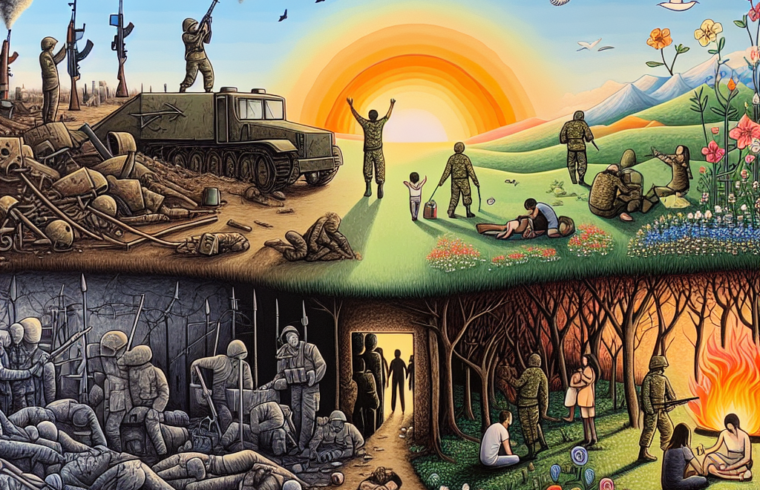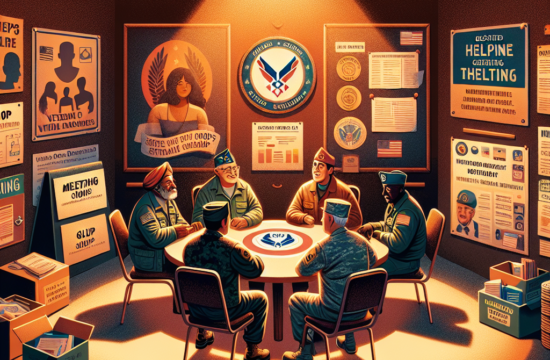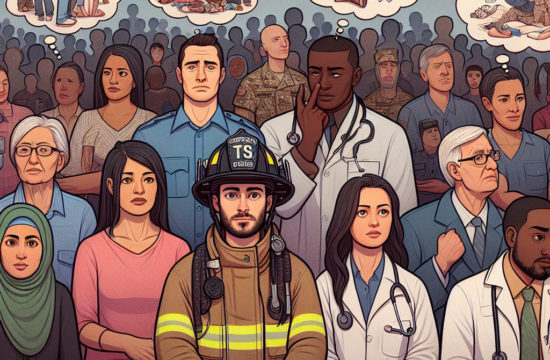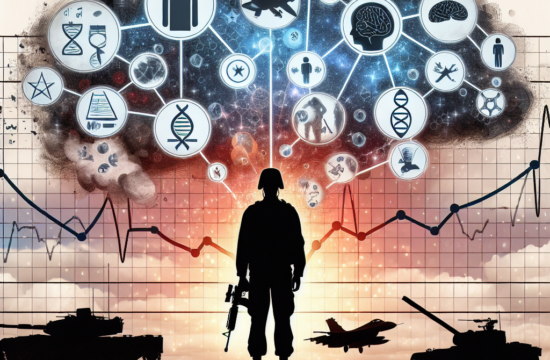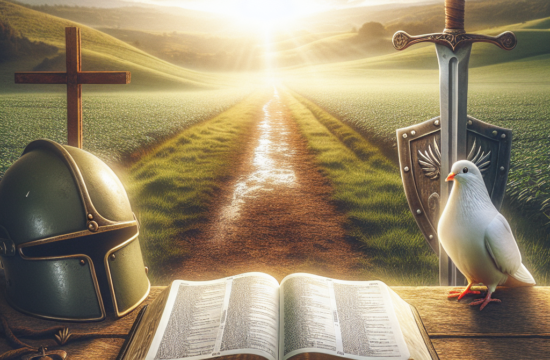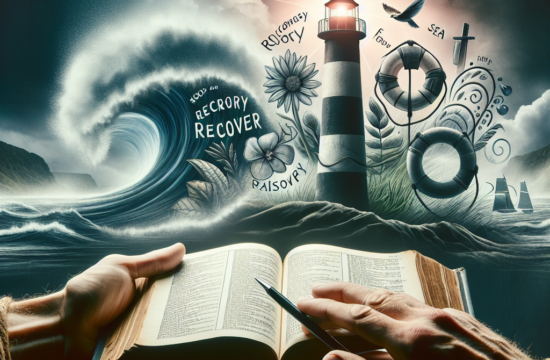Table of Contents:
- Coping with Post-War Trauma
- Importance of Community Support
- Rebuilding Personal Relationships
- The Role of Professional Help
Coping with Post-War Trauma
Understanding the Nature of Trauma
So, first things first, let’s chat about what trauma really is. Trauma from war isn’t just about the intense moments of fear and panic; it’s also about the aftermath—the lingering dread, the nightmares, and the unexpected triggers. When you’ve been in the middle of chaos, your brain takes a beating. All those fight-or-flight moments kinda rewire you.
==> Thank you for reading this post! Click Here If you are looking for support and Victory over PTSD.
Think of trauma as an uninvited guest that shows up whenever it pleases. You might be perfectly fine, and then bam! You’re reliving a moment that haunts you. It’s like watching a horror movie you can’t turn off. There’s an element of unpredictability that makes it challenging to manage.
To deal with trauma, you need to understand it. That means acknowledging it’s there. Ignoring traumatic experiences is like putting a band-aid on a bullet wound—it simply won’t work. Acceptance is the first step to healing. Once you’ve accepted that you’re dealing with trauma, only then can you begin to truly cope with it.
Utilizing Grounding Techniques
Grounding techniques are lifesavers when it comes to coping with trauma. One of my personal favorites is the 5-4-3-2-1 technique. This method makes you focus on your surroundings, pulling you out of your mind’s dark places and bringing you back to the present. Trust me, it’s an amazing tool when those intrusive thoughts start creeping in.
Practicing mindfulness goes a long way too. It might sound a bit cliché, but staying in the moment can really help you keep anxiety at bay. Techniques such as deep breathing, meditation, or even something as simple as noticing the texture of the objects around you can be immensely beneficial.
Sometimes, the simplest tools are the most effective. Keep a small object in your pocket like a worry stone or a piece of fabric. When you start feeling overwhelmed, touch it, feel its texture, and focus all your senses on it. These little things can bring you back from the edge.
Seeking Professional Guidance
Look, there’s no shame in asking for help. Therapy can be a powerful avenue for dealing with post-war trauma. Psychologists, especially those specialized in trauma and PTSD (Post Traumatic Stress Disorder), can offer coping mechanisms tailored to your specific experiences.
Group therapy is another great option. It provides a space to share your experiences and hear others who have been through similar situations. Knowing you’re not alone in your struggles can be immensely comforting and provides a sense of belonging.
Medication is sometimes prescribed to help manage symptoms like anxiety and depression. Consulting a psychiatrist to discuss potential benefits and side effects can be a wise decision. Combining medication with therapy can often yield the best results.
Importance of Community Support
The Power of Shared Experiences
Let’s talk about how vital it is to have a community around you. It’s amazing what happens when people come together. Shared experiences can be incredibly healing. When you’re around people who understand what you’ve been through, it creates an immediate bond. It’s like speaking the same language.
Whether it’s a local support group or an online forum, surrounding yourself with people who ‘get it’ offers a unique form of validation. No need to explain every detail because they just…know. That kind of support can be a pillar during tough times.
Sharing stories also shifts the focus from individual suffering to collective healing. It allows for a deeper connection and can significantly alleviate feelings of isolation. Connection and understanding are bridges to recovery.
Volunteer Organizations and Peer Support
Volunteer organizations are gold mines for support. These groups often specialize in helping individuals who are facing similar challenges. Getting involved can be a great way to connect with others while also giving back. It’s a two-way street; you help others, and in turn, you help yourself.
Peer support programs are especially useful. These programs pair you with someone who has walked a similar path. Having someone who can say, “I’ve been there, and here’s how I dealt with it,” makes a world of difference. Their insights can provide actionable coping strategies.
I remember joining a local veteran’s group soon after my deployment ended. The camaraderie was something I couldn’t find anywhere else. It was a safe place to vent, share tips, or just sit in comfortable silence. Knowing there was a network of people supporting me was essential in my journey to recovery.
Creating a Supportive Environment
A supportive environment starts at home. Family and friends play a crucial role in the healing process. Educating them about what you’re experiencing can create a more understanding and accommodating atmosphere. Remember, they need to be clued in on how to support you effectively.
It’s helpful to create a ‘safe space’ in your living environment. This could be as simple as a dedicated room or a favorite chair where you can go to relax, ground yourself, and feel secure. Having a physical space for emotional recovery is incredibly beneficial.
Don’t overlook the importance of routine. Regularity provides stability and can be incredibly soothing. Setting daily or weekly routines, whether it’s simple tasks like taking a walk or more organized activities like attending a weekly support group, can significantly improve your emotional well-being.
Rebuilding Personal Relationships
Open Communication
When it comes to rebuilding personal relationships post-war, open communication is the cornerstone. Your loved ones need to understand what you’re going through. Talking honestly about your feelings and experiences will foster a deeper understanding and stronger connections.
It might be tough to open up initially, but transparency is key. Be honest about your emotional state and the type of support you need. This clarity helps to manage expectations and alleviates misunderstandings that can strain relationships.
Also, remember to be a good listener. Relationships are a two-way street. Just as you need to share, you also need to listen to the concerns and feelings of your loved ones. This mutual exchange builds trust and a more resilient connection.
Establishing Boundaries
Boundaries are essential for sustaining healthy relationships, especially when dealing with post-war emotions. It’s ok to say no and to set limits on what you can handle. Be clear with your loved ones about your needs and the space you require for self-care.
Think of boundaries as a sign of respect for both yourself and others. They prevent burnout and emotional overload, creating a balanced dynamic. It’s an act of self-preservation, but it also ensures that your relationships don’t become a source of stress.
If you feel overwhelmed, communicate this clearly. Your mental health should always take the driver’s seat. True friends and family will respect your boundaries and support your journey towards recovery.
Rekindling Connections
Reigniting connections post-war can be a rewarding but challenging process. Start slow. Simple gestures like a phone call, a text or even meeting for a coffee can go a long way. Just letting people know you value them is a significant first step.
Don’t rush the process. Take your time to reconnect at a pace that feels comfortable for you. Relationships, especially close ones, might need time to heal, just like emotional wounds. Patience is crucial here.
Shared activities can help strengthen bonds. Engaging in hobbies or interests you enjoyed together pre-war can bring a sense of normalcy and joy. It’s about finding common ground and building from there.
The Role of Professional Help
Choosing the Right Therapist
The process of finding the right therapist can feel daunting, but it’s worth its weight in gold. Look for someone who specializes in trauma and PTSD. Their expertise can provide targeted strategies that cater specifically to your needs.
Don’t hesitate to ‘shop around.’ It’s perfectly okay to consult with a few different therapists to find the one you click with. The relationship between you and your therapist needs to be based on trust and comfort for effective healing.
Keep an open mind during your sessions. Therapy isn’t a miracle cure, but it can significantly help in managing symptoms and improving quality of life. Take it one session at a time and recognize it’s a journey, not a sprint.
Benefits of Group Therapy
Group therapy can be another lifeline. There’s something incredibly cathartic about sharing your experiences with people who’ve walked in your shoes. The shared understanding and mutual support can be powerful forces for recovery.
In group settings, you gain insights from fellow members who might be further along in their recovery. Their perspectives can offer new ways of coping and foster hope. Plus, the sense of community within these groups can be incredibly comforting.
Participating actively in group therapy can also help in breaking down emotional walls. Speaking openly in a group can build confidence and courage, translating into better personal relationships and self-awareness.
Medications and Their Role
Medications can sometimes be a crucial part of the recovery toolkit. Consulting a psychiatrist to find out if this option is right for you is an essential step. They can prescribe medications that help manage symptoms like anxiety, depression, and insomnia.
It’s important to remember that medications aren’t a one-size-fits-all solution. What works for one person might not work for another. Regularly check in with your psychiatrist to monitor the effectiveness and adjust as needed.
Combining medication with other forms of therapy usually yields the best results. Think of it as a multi-pronged approach to tackling emotional recovery. Medication can provide the stability needed to fully engage in therapeutic practices.
FAQs
Q: What are common symptoms of post-war trauma?
A: Common symptoms include flashbacks, nightmares, severe anxiety, uncontrollable thoughts about the event, and other emotional disturbances. It’s important to consult a professional for an accurate diagnosis.
Q: How can community support help in recovery?
A: Community support offers shared experiences, emotional validation, and a sense of belonging. It can significantly alleviate feelings of isolation and provide a network of understanding and support.
Q: What should I consider when choosing a therapist?
A: Look for a therapist with experience in trauma and PTSD. Ensure there is a good rapport and that you feel comfortable sharing your experiences. It may take consulting with a few therapists to find the right fit.
Q: Are medications necessary for recovery from post-war trauma?
A: While not always necessary, medications can help manage symptoms of anxiety and depression. It’s best to consult a psychiatrist to determine if medications are appropriate for your situation.
Original Source
